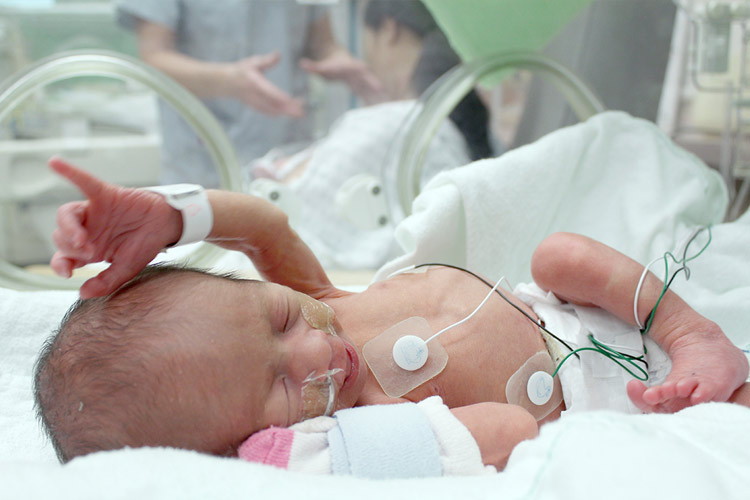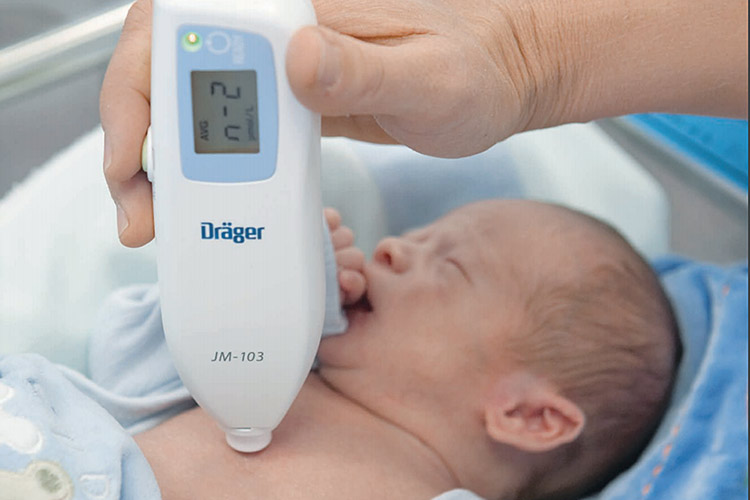No More Tears
In January this year, Baby D was born via C-section at Lions Gate Hospital. Like all newborns, he had a heel prick test to check for jaundice, a common condition that affects around 40-50% of the babies born at the hospital. Jaundice in newborns is very common and creates a yellow tint in the skin and the whites of the eyes. It is caused because the liver is not yet developed enough to process bilirubin, a yellow pigment produced by red blood cells. As red blood cells are broken down, the pigment stays in the bloodstream of the babies instead of being removed as a waste product.
Make your donation below. Or call us at (604) 984-5785.
Baby D was diagnosed with jaundice and over several days, he received blue-light phototherapy to help his body break down the excess bilirubin in his body. As well as sessions under the blue light, he had to have regular heel pricks to test his bilirubin levels. In total he had 11 heel pricks. “It broke my heart every single time,” recalls his mum Jennifer. More than 1,600 babies are delivered each year at Lions Gate Hospital. All of them endure the jaundice heel prick which often causes tears and unavoidable upset for both baby and parents.
We’re raising funds to purchase a non-invasive hand-held bili-reader or jaundice meter which will provide a gentle, pain-free and speedy way to test the bilirubin levels of newborn babies. Nurses or physicians simply press the reader against the forehead or sternum of the baby to get a reading. Not only will the technology cut down on the number of heal pricks that jaundiced babies need, it will eliminate lab processing times for families waiting to go home with their newborns. Babies with jaundice undergo phototherapy and require regular heel pricks to check their levels. Each heel prick requires testing at the lab which takes a minimum of one hour. With the hand-held bili-reader, there will be far fewer heel-prick tests and a reduced number of lab tests ordered which will free up techs to focus on other diagnostic tests. The technology will also cause less stress, tears and pain all round for babies and their parents.
Newborn Jaundice
Jaundice usually occurs within 48-72 hours after birth and babies are tested before they are discharged from hospital. The problem often corrects itself within a week or two through regular feeding but more severe jaundice is treated with phototherapy. Jaundice is more common in premature babies (up to 85% of premature babies have the condition), newborns that have had a difficult birth and infants born to mothers with incompatible blood types.

Jaundice Screening Technology
Hand-held jaundice meters work by measuring the levels of yellow pigment in the subcutaneous tissue of babies using light instead of a needle. The probe won’t wake sleeping babies and the digital display reading is available in seconds. The money raised by this Giving Tuesday fundraiser will purchase a Dräger Jaundice Meter which costs $8,823.